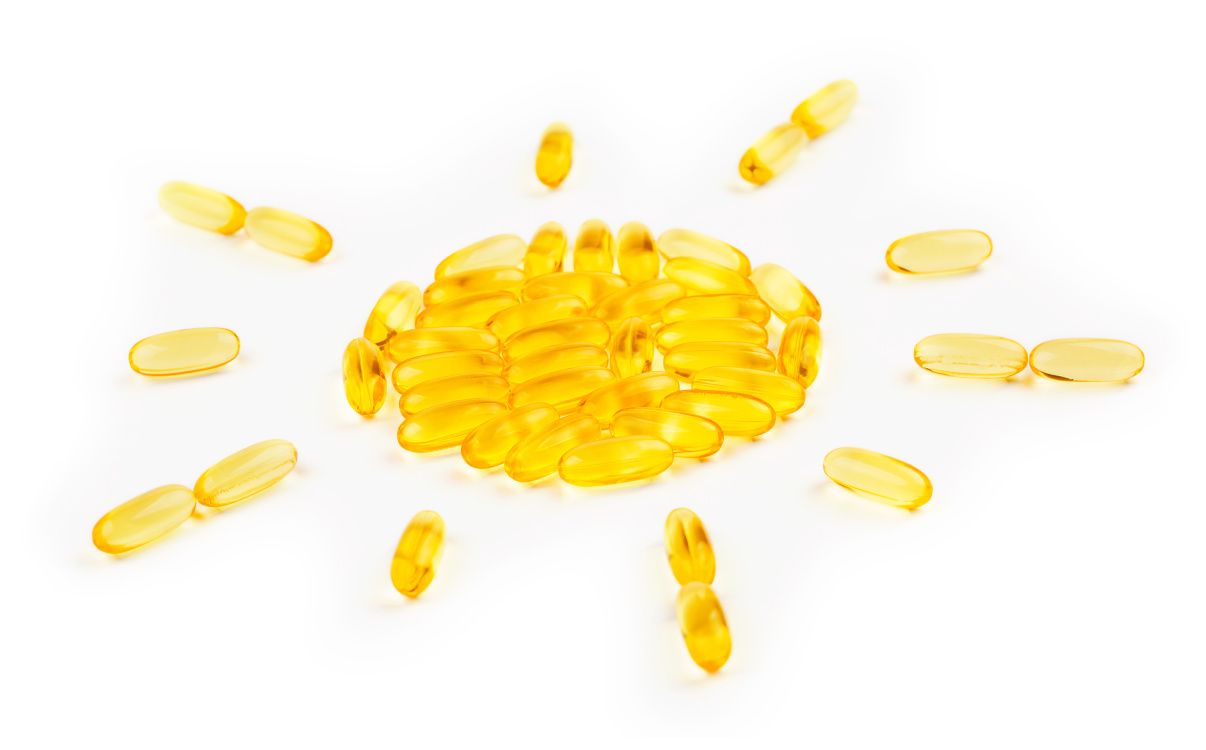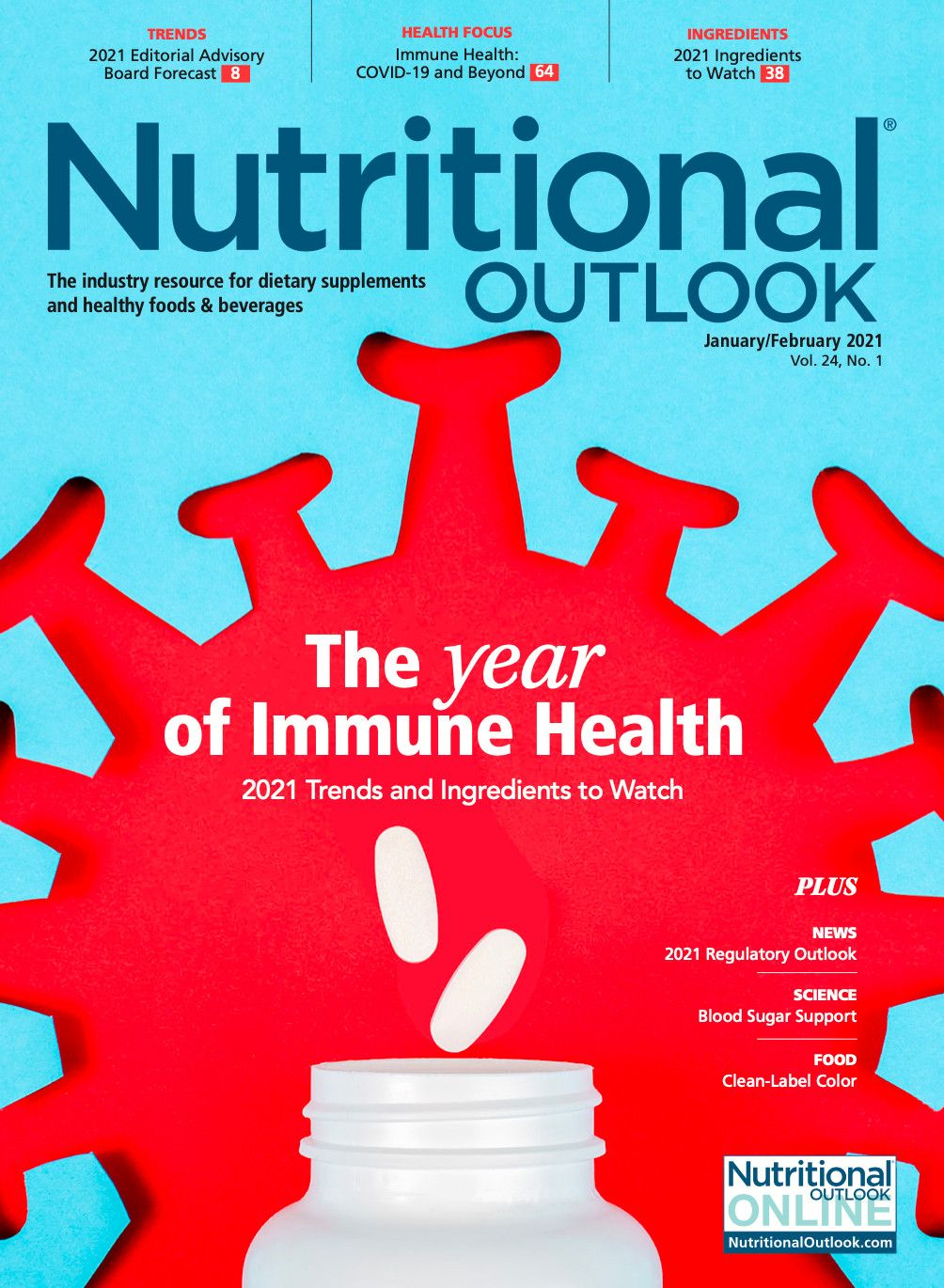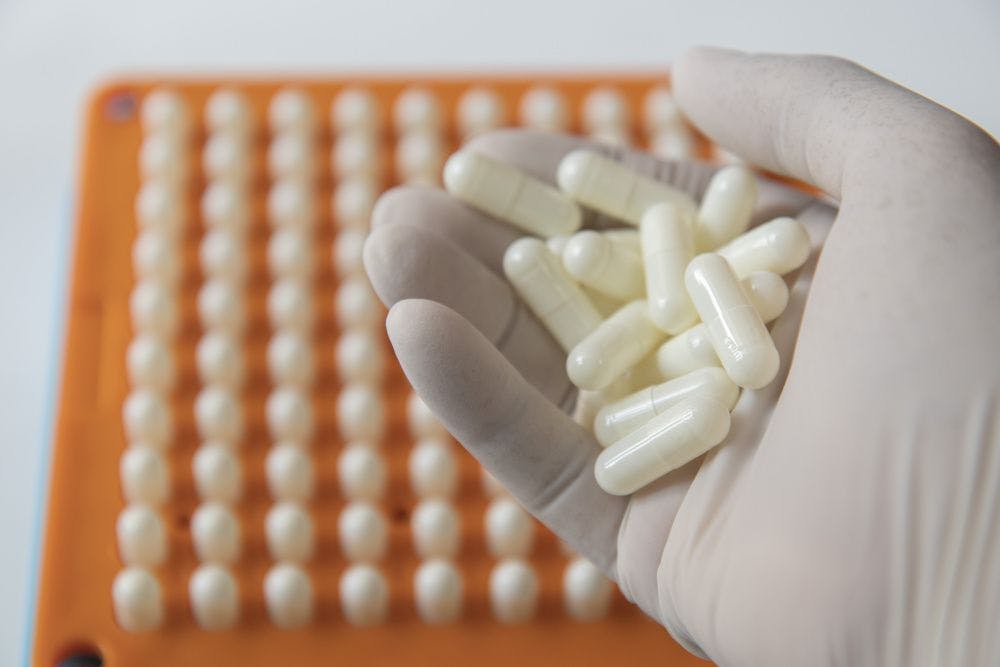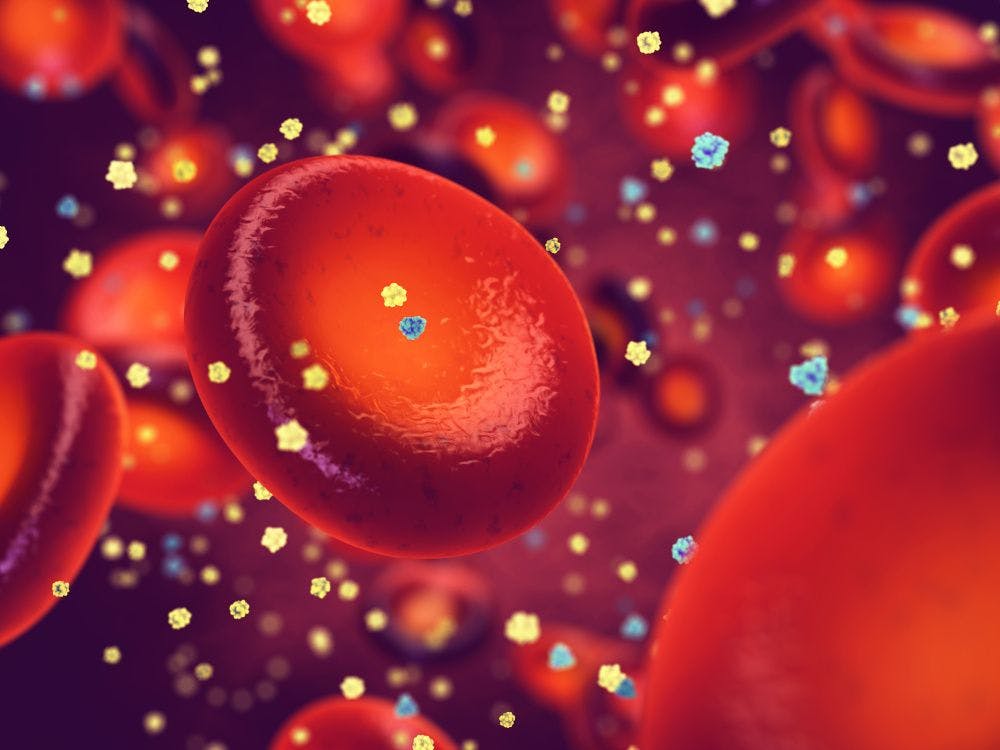Vitamin D made headlines over COVID-19 studies last year. Sales of vitamin D were also up in 2020. What will 2021 look like? 2021 Ingredient trends to watch for food, drinks, and dietary supplements
Vitamin D saw sales and usage grow in 2020, including possibly due to emerging research linking vitamin D supplementation with COVID-19 outcomes. Hear experts discuss why science will keep the spotlight on vitamin D in 2021.
PHOTO © JRP STUDIO - STOCK.ADOBE.COM

Over the past decade, consumers and healthcare practitioners have grown more informed about the importance of identifying and preventing vitamin D deficiency. More doctors are testing patients’ vitamin D levels, and at-home tests even let consumers do it themselves.
Media coverage of vitamin D research has done a lot to raise the nutrient’s profile. “Vitamin D has been the subject of many research studies over the past several years demonstrating a wide range of benefits and is likely the most researched dietary supplement ingredient,” says Luke Huber, ND, MBA, vice president of scientific and regulatory affairs at the Council for Responsible Nutrition (CRN; Washington, DC). “Healthcare practitioners have taken notice, and testing of vitamin D blood levels has become common practice.”
Vitamin D is first and foremost known for its role in bone health, aiding calcium absorption and bone mineralization in everyone, from developing children to menopausal women suffering bone resorption. Aside from bone health, vitamin D’s roles in reducing inflammation and supporting cell growth, neuromuscular and immune function, and glucose metabolism continue to be studied.1 Arielle Levitan, MD, cofounder of personalized-vitamin brand Vous Vitamin, says vitamin D is being studied in other areas as well, including cancer prevention, heart health, and migraine treatment.
Unfortunately, Americans don’t get the amount of vitamin D they need either through sunlight exposure or the diet. The body produces vitamin D endogenously in the skin once sunlight triggers vitamin D synthesis, but most people do not get adequate sun exposure to start with. Doctor and bestselling author Jacob Teitelbaum, MD, points out, “Part of [the problem of suboptimal vitamin D levels] is because of the misguided advice to avoid sunshine, which is what triggers vitamin D production. The proper advice is to ‘avoid sunburn not sunshine.’” During the COVID-19 pandemic, people may also be staying indoors more often, exacerbating the problem.
Americans also do not get enough vitamin D from the diet. “We cannot get vitamin D in sufficient amounts from our diet since it is found in very limited amounts in food sources—small amounts in milk, eggs, mushrooms, and more in liver,” says Levitan.
The 2020-2025 Dietary Guidelines for Americans state that more than 90% of U.S. men and women over the age of 19 do not get enough vitamin D. “The guidelines recognized that vitamin D is a nutrient of public health concern that is difficult to get solely from food, stating, ‘Vitamin D recommendations are harder to achieve through natural sources from diet alone and would require consuming foods and beverages fortified with vitamin D,’” says Huber.
Vitamin D supplementation has therefore become essential. The guidelines recommend that people use vitamin D supplements to fill gaps, especially if they also aren’t getting exposed to adequate sunlight. What’s more, Huber says, for the first time the guidelines took the step of evaluating the vitamin D needs of infants and recommended that breastfed or partially breastfed infants receive 400 IU of supplemental vitamin D daily.
Thankfully, the message is getting through. Vitamin D supplement sales have grown steadily over the years—and last year, against the backdrop of the COVID-19 pandemic, sales simply skyrocketed.
Data from SPINS (Chicago) on the U.S. dietary supplement market during the year ending November 29, 2020, show that vitamin D sales in both the mainstream and natural retail channels grew by pretty similar double-digits across the board. In the overall mainstream channel, vitamin D sales grew 34.4% to $544 million. Meanwhile, in the natural channel overall, vitamin D sales grew 36.5% to $40 million. Furthermore, in the mainstream bone health market, vitamin D grew 32.2% to $292 million; in the natural bone health category, vitamin D grew 43.3% to $19 million.
Two surveys CRN sponsored in 2020 confirm that more consumers relied on vitamin D last year to shore up their health. The first, a COVID-19–focused survey conducted by Ipsos on July 31, 2020, to August 4, 2020, polled more than 2000 existing U.S. supplement users to determine how their supplement use changed during the pandemic. Fully 37% of supplement users said they had increased their use of vitamin D. Another survey, CRN’s annual Consumer Survey on Dietary Supplements, polled more than 2000 U.S. adults on August 27-31, 2020, and found 42% of respondents used vitamin D.
Vitamin D is set for continued growth. Huber points out that vitamin D usage has steadily increased in CRN’s survey over the past five years. “It is likely that vitamin D usage will continue to grow in 2021 and in future years, as this ingredient has increased by 10 percentage points since 2015 (32% in 2015 vs. 42% in 2020),” he says.
Part of what drove the heightened interest in vitamin D in 2020 was research showing that vitamin D status may have an impact on COVID-19 outcomes. “Research is showing that people who are deficient in vitamin D are at increased risk of getting COVID and dying from COVID,” explains Penny Kris-Etherton, PhD, science advisory board member for dietary supplements company HumanN.
For instance, Kris-Etherton points to a well-publicized retrospective study2 published in September 2020 that found that people deficient in vitamin D might have a higher risk of contracting COVID-19. Researchers looked at data on 489 patients who had had their vitamin D levels tested one year before being tested for COVID-19. The study found that patients who had tested as deficient in vitamin D had a 21.6% chance of getting COVID versus 12.2% for patients who had sufficient vitamin D status. This means suboptimal patients had a 1.77-times higher risk of testing positive for COVID-19. Said the researchers, “randomized trials may be needed to determine whether vitamin D affects COVID-19 risk.”
Both Kris-Etherton and Teitelbaum point to another retrospective study3 published in November 2020 that looked at data on 186 patients hospitalized with severe acute respiratory syndrome related to COVID-19. It found that most patients were vitamin D deficient and that deficiency was associated with a 3.7-fold increased risk of death, Teitelbaum says.
Teitelbaum highlights another observational study4 published in November 2020 that found that the fatality rate for patients deficient in vitamin D was higher (at 21%) compared to those with adequate vitamin D status (at 3%). The study looked at data on 154 patients, including those severely ill with COVID-19 who required ICU admission. The study also looked at data from asymptomatic carriers. Researchers found that while 97% of severely ill ICU COVID-19 patients were vitamin D deficient, only 33% of asymptomatic patients were vitamin D deficient—meaning vitamin D deficiency may be more heavily associated with severe COVID-19 cases. These findings led the researchers to state, “This all translates into increased mortality in vitamin D–deficient patients. As per the flexible approach in the current COVID-19 pandemic, authors recommend mass administration of vitamin D supplements to population at risk for COVID-19.”
Of the studies being done on vitamin D and COVID-19, Teitelbaum says, “The science is very credible.”
Furthermore, he points out: “They are convincing enough that Richard H. Carmona, MD, MPH, the 17th surgeon general of the U.S. and distinguished professor of public health, has noted, ‘It is our responsibility as physicians not to wait for perfect evidence when making life-and-death decisions. Given the safety profile of vitamin D, the 40% prevalence of vitamin D deficiency in the U.S.5, and the fact that this season will likely be the deadliest phase of the pandemic to date, we need to act now. Identifying and eradicating vitamin D deficiency with early and aggressive supplementation in COVID-19 has the potential to save thousands of lives and should be one of our highest public health priorities.’” This statement was published in an op-ed6 written by Carmona and co-authors on January 5, 2021.
Nicole M. Avena, PhD, assistant professor of neuroscience at Mount Sinai School of Medicine and visiting professor of health psychology at Princeton University, agrees the studies done on vitamin D and COVID-19 seem credible. But, she rightly points out, “These studies are new since COVID-19 is so new and will need several more years of trials and evidence to become truly robust—but so far, the results of the studies conducted already have been consistent.”
The fact that the pandemic has gotten even more healthcare practitioners now paying attention to vitamin D is good news for the supplements industry, Avena acknowledges. “Considering the compelling evidence that has surfaced so far associating vitamin D deficiency with more severe COVID-19 cases, it is likely that practitioners will continue to recommend vitamin D to support immunity against COVID-19 and in general,” she says.
Kris-Etherton agrees. “I think that more practitioners will be assessing the vitamin D status of their patients now and intervene when necessary.”
And Levitan says, “I believe the pandemic has been enlightening to many health professionals regarding the essential role vitamin D can play in overall health. I suspect it will continue to be an important focus in preventive medicine going forward.”
Even setting aside COVID-19 concerns, vitamin D is such an important nutrient that supplementation should always be a priority. “Vitamin D is crucial for many functions in the body and should be consumed for good health for the entirety of one’s life,” Avena says. Vitamin D deficiency continues to be a problem for a wide portion of the population, including Hispanics, blacks, seniors, and obese individuals. (Levitan points out: “Interestingly, the highest-risk groups for COVID infection have significant overlap with people known to be vitamin D deficient—obese, dark-skinned, diabetic.”)
But all this attention on vitamin D could be a double-edged sword, says Teitelbaum. It’s important to set the right expectations for patients about what vitamin D supplementation can do, especially in cases of illness; if not, there could be backlash. For instance, he says, “It is important to understand that low vitamin D blood levels may not reflect vitamin D deficiency. Vitamin D is what is called an ‘acute phase reactant.’ That means that the blood levels change during inflammatory and other conditions, which may be what is driving the vitamin D deficiency in these illnesses.”
Basically, he says, this means that in people with certain conditions, even if vitamin D deficiency is detected in a blood test, supplementing with vitamin D may not necessarily result in an expected benefit. “We do need to be careful to note that association does not confirm causation,” he says. “The low vitamin D being associated with an illness does not mean that supplementing will decrease the illness risk. Having this understanding as we move forward is important to temper expectations. Otherwise, negative results will be used to slam the natural supplement industry.”
It’s also important for consumers to understand that vitamin D supplementation needs depend on the individual. Levitan says that while most people need to supplement with vitamin D, “they do not all need the same amounts. Needs vary based on the individual. Who you are, where you live, your diet, lifestyle, and health concerns all factor into your individual vitamin needs. Thus, taking a personalized multivitamin is a great way to get exactly what you need.”
The research on COVID-19 and vitamin D will continue to fuel interest in this ingredient in the near term and will further the motivation to supplement with this critical nutrient. And while no supplement can treat or prevent a disease, “I think that the ongoing research on vitamin D and COVID will continue to promote interest in understanding the health benefits—and benefits on immune health—of vitamin D,” says Kris-Etherton. She adds: “We know that a good vitamin D status is beneficial for developing a healthy immune system.”
And, as vitamin D has shown over the past decade, the ingredient’s staying power is strong—COVID or no COVID. Says Huber: “CRN anticipates sustained interest in vitamin D in 2021 and beyond due to continuing research demonstrating the important role the ingredient plays in supporting various health outcomes. A current search of clinicaltrials.gov using the search terms COVID-19 and vitamin D currently provides a list of 67 studies globally, illustrating the significant research interest in this nutrient. Vitamin D continues to be studied in many other areas as well, with over 3,200 studies appearing on a search of vitamin D in the clinical research database. As these studies publish, vitamin D will continue to garner more attention.”
References
- National Institutes of Health, Office of Dietary Supplements website. “Vitamin D Fact Sheet for Health Professionals.” Updated October 9, 2020. Accessed on January 19, 2021.
- Meltzer DO et al. “Association of vitamin D status and other clinical characteristics with COVID-19 test results.” JAMA Network Open, vol. 3, no. 9 (September 2020): e2019722
- De Smet D et al. “Serum 25(OH)D level on hospital admission associated with COVID-19 stage and mortality.” American Journal of Clinical Pathology. Published online ahead of print November 25, 2020.
- Jain A et al. “Analysis of vitamin D level among asymptomatic and critically ill COVID-19 patients and its correlation with inflammatory markers.” Scientific Reports, vol. 10, no. 1. Published online November 19, 2020.
- Parva NR et al. “Prevalence of vitamin D deficiency and associated risk factors in the U.S. population (2011-2012).” Cureus, vol. 10, no. 6 (June 5, 2018): e2741
- Carmona RH, Thakkar VG, and Umhau JC. “Op-Ed: Don’t Let COVID-19 Patients Die with Vitamin D Deficiency.” MedPage Today. Published online January 5, 2021.
2021 Ingredient Trends to Watch for Food, Drinks, and Dietary Supplements:
Vitamin C
Melatonin
Vitamin D
CBD
Elderberry
Mushrooms
Ashwagandha
Multivitamins
Protein
Probiotics

Polyphenols: The next generation of prebiotics is ready for liftoff
April 21st 2025Explore the prebiotic health benefits of polyphenols and the positive impact they may have on digestive and immune health. Polyphenols, such as those found in European black elderberry, may be an ideal solution for manufacturers trying to break into the digestive health space.

























